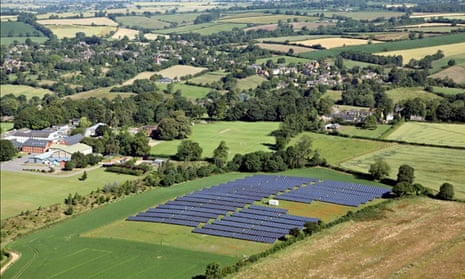The row between Labour and the government over solar farm policy is rumbling on, after the Department for Environment, Food and Rural Affairs (Defra) again admitted it had no detailed information on how solar arrays may impact food production, despite environment secretary Liz Truss’ assertion that the expansion of solar farms represents a “big problem”.
Responding to a written question from Labour’s shadow climate change minister Julie Elliott late last week, farming minister George Eustice dodged the request for Defra to reveal what estimate has been made for “the number of solar farms in the UK that include livestock grazing”.
“We estimate that there are currently around 250 solar farms in the UK, and with numerous others in the planning system, we estimate there will be over 1,000 by the end of the decade,” said Eustice. “This would remove a large amount of farmland from agricultural production.”
However, he failed to disclose how much land is expected to be taken out of production and also refused to provide any figures as to how many farms were co-locating solar arrays and livestock grazing – although he did question whether this practice was widespread.
“While some developers claim as part of their planning applications that they intend to graze livestock under solar panels, in practice many are reluctant to allow livestock to be co-located with expensive capital equipment,” he said, adding that as land covered by solar panels can no longer have agricultural production as its “primary activity” the government was justified in newly exempting it from common agricultural policy (CAP) payments.
The news follows a similar response last week to a written question from Labour’s Paul Flynn, in which Eustice admitted Defra had “made no estimate of the amount of land occupied by solar panels which was arable land usable for economically farmed fruits or vegetables”.
Labour’s attacks on the government’s solar policy follow Truss’ decision last month to end CAP subsidies for farmland that is converted to solar arrays, which she accompanied with accusations that solar farms are undermining the UK’s food production and represent a blight on the landscape.
The criticism sparked an angry response from the solar industry, which accused Truss of singling out the technology and ignoring the manner in which growing numbers of solar farms are co-located with food production and biodiversity initiatives.
